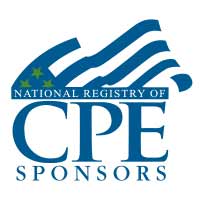We regret to inform you that we currently don't have any sessions scheduled for this course.
Please let us know your preferred date and venue, and we'll contact you soon.
INTRODUCTION
In light of increasing marine environment protection imperatives, an updated and global understanding of the marine pollution problem, as well as enhanced awareness of management systems should be a priority to everyone involved with the shipping and offshore oil and gas industries.
This training course provides an overview of marine pollution agenda, with the focus on emerging trends, current management systems, and ship-source pollution management. The training course is designed to provide a global approach to marine pollution management integrating, amongst others, the human element, industry best practices, and recent developments on the international level.
This GLOMACS Marine Pollution Management Fundamentals training course will feature:
- Fundamentals of marine environment protection and marine pollution
- Management systems and marine pollution
- Ship-source marine pollution management
- Proactive approaches and post-event strategies
- Topical issues
Objectives
By the end of this training course, participants will be able to:
- Identify the challenges relating to marine environment protection and marine pollution management
- Develop familiarity with current trends and policies
- Improve their understanding of ship-source marine pollution management
- Identify hazards related to offshore oil and gas operations affecting the marine environment
- Enhance their understanding of legal management of marine pollution
WHO SHOULD ATTEND?
This GLOMACS Marine Pollution Management Fundamentals training course is suitable to a wide range of professionals but will greatly benefit:
- Managers from the shipping and oil and gas industries
- Administrators in contact with the maritime industry
- Administrators involved with the implementation of international regulations
- Jurists interested in the broader picture of marine pollution
- Technical personnel keen to develop familiarity with international regulations and managerial practices
- Senior professionals interested in updates
- Market newcomers
Day 1
Fundamentals
- Definitions, types of marine pollution and impacts
- Emerging trends: Sustainability and SDG (Sustainable Development Goal) 14
- Precautionary principle, Polluter pays principle, Strict liability
- Ships and ports
- Pollution from the off-shore oil and gas sector
- Global and regional marine pollution management actions
Day 2
Management Systems and Marine Pollution
- International standards/specifications relating to marine environment protection
- International Safety Management (ISM) Code Overview
- Impact of the ISM Code on marine pollution management
- Managing the human factor through education and training
- Shift of marine pollution risk to underwriters
- Legal management of polluting incidents
Day 3
Ship-Source Marine Pollution Management
- Marine pollution from bunkers and carriage of oil by sea
- Shipboard Oil Pollution Emergency Plan (SOPEP)
- Chemical Pollution
- Management of sewage aboard
- Garbage Management Plan
- Marine pollution management and ship recycling
Day 4
Proactive Approaches and Post-Event Strategies
- International conventions
- Regional conventions
- Use of places of refuge
- Contingency planning on the national level
- Monitoring
- Post-event intervention
Day 5
Topical Issues
- Polar Code
- Air emissions from vessels
- Ballast water
- IMO Audit Scheme
- Decommissioning of offshore platforms
- Unmanned vessels
- On successful completion of this training course, GLOMACS Certificate will be awarded to the delegates
- Continuing Professional Education credits (CPE) : In accordance with the standards of the National Registry of CPE Sponsor, one CPE credit is granted per 50 minutes of attendance
Endorsed Education Provider
GLOMACS is registered with the National Association of State Boards of Accountancy (NASBA) as a sponsor of continuing professional education on the National Registry of CPE Sponsors. State boards of accountancy have final authority on the acceptance of individual courses for CPE credit. Complaints regarding registered sponsors may be submitted to the National Registry of CPE Sponsors through its website: www.NASBARegistry.org
GLOMACS Training & Consultancy
Typically replies within an hour



